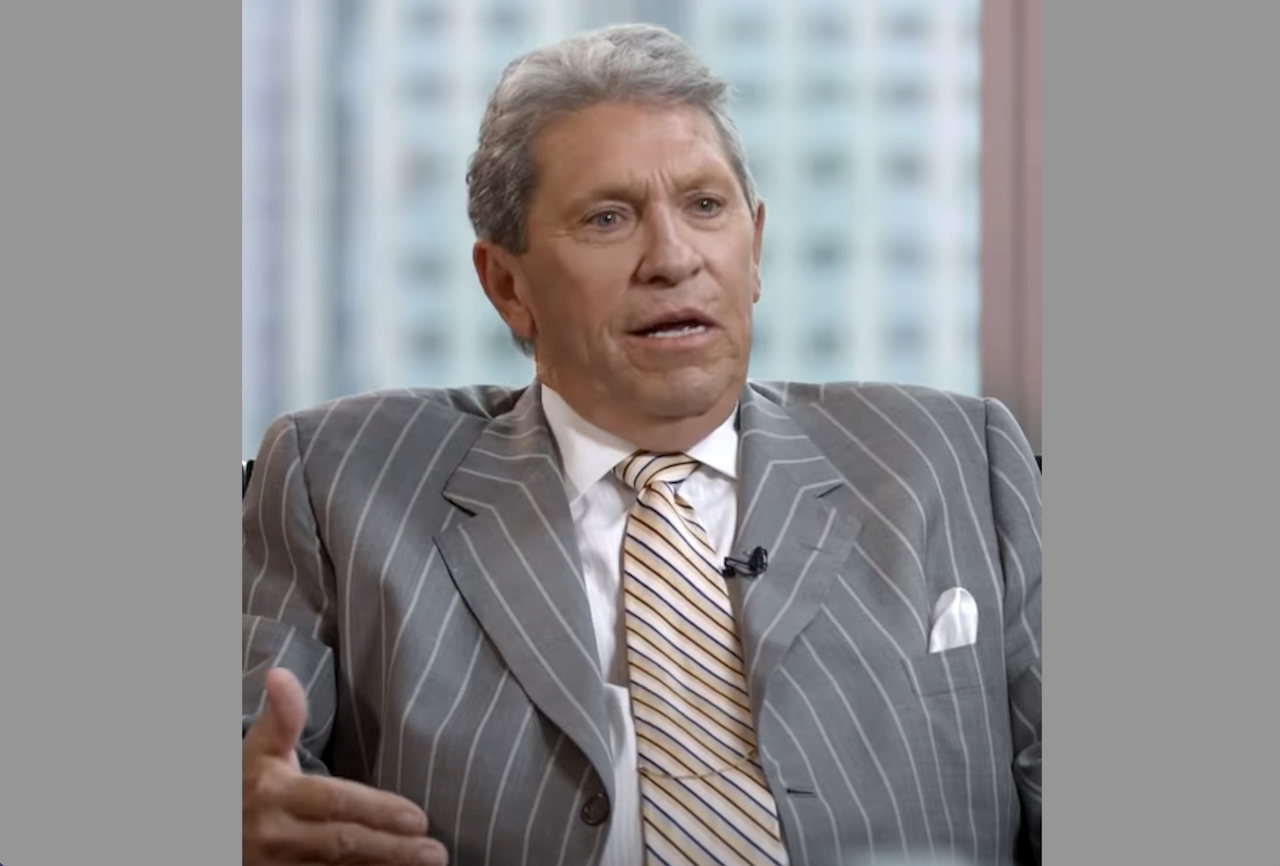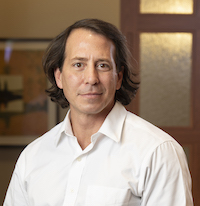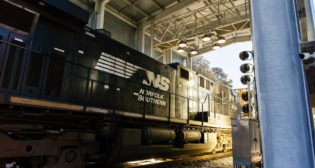
What Do We Owe the Deceased?
Written by David Nahass, Financial Editor
The late E. Hunter Harrison
FINANCIAL EDGE, RAILWAY AGE MAY 2023 ISSUE: Chat bots and AI are all the rage these days. Whether it is BingAI, BardAI or openai.com, fantasies of Terminatoresque or chatbot romance abound. (See this article on an AI being asked to destroy humanity, or this one where a chatbot professes love for the author.)
AI struggles with the veracity of its output. While a chatbot essay might be perfectly functional for someone too lazy to read a Wikipedia article, generally, under the auspice of improving technology, today’s AI carries forward the foibles of the humanity that have brought it into existence.
It would be perfectly wonderful, in a conveniently dismissive way, if AI were to blame for the dramatically focused, hyperbolic reporting on the aftermath of Norfolk Southern’s (NS) East Palestine derailment. Most notable in the literally postmortem reporting is the late E. Hunter Harrison. The exhumation of Mr. Harrison and his legacy for public flogging represents several in a series of nadirs sacrificing journalistic integrity that has gone into the reporting related to the East Palestine derailment.
In the January 2020 “Financial Edge,” the late Mr. Harrison was identified for the impact he was having on railroad CEOs across North America. It highlighted that the failure to align with the ideology of PSR was the equivalent of handing in one’s resignation.
So, having exhausted the topics of Alan Shaw and the NS, the drums have come to beat for Mr. Harrison. Having survived his first turn as an industry and corporate savior and a second turn as overhanging legacy, Mr. Harrison is now the mastermind that implemented an era of neglect and unsafe train handling. His legacy has been called into question—his contributions to the industry connected to the East Palestine derailment as if he had been the ghost pushing the car off the tracks himself.
The Latin phrase mortuis nihil nisi bonum (never say ill of the dead) is attributed to Chillion of Sparta. We are now in an era where people in general do not worry about the spirits or about being haunted by them. Perhaps one can blame the existentialists for modernity’s focus on the appearance of existence over the appreciation of those who have passed. Nonetheless, respect for the dead is a quaint sentiment.
What do we owe the dead? Respect or at least honesty over a selective reinterpretation and allocation of blame. Modernity has shown that there is a cultivated and subjective process deciding whose sins and what sins do and don’t die. The reporting on Mr. Harrison sadly minimizes his role as a man who made progressive changes in how railroads perceive the operational dynamic. His role is then recontextualized as a person who had a leadership role in creating a culture of neglect and unsafe, derailment-inducing train handling. Talk about keeping one hand on the wheel.
Articles bashing Mr. Harrison read like something out of a chatbot. There’s some superficial biography, light facts and prodigious verbal summation. The package is backed by some juicy quotes—topic relevance indeterminate.
Gleaning from the chatbot set yields a few significant points and conclusions. Longer, heavier trains are harder to stop; a train light in the front and heavy in the back is more challenging to stop, especially over Northeastern and Midwestern hilly terrain; and most attempts by industry parties (union, regulatory, advisory) to highlight longer train safety risks have gone unanswered. Biggest takeaway? It’s easy to hang an oppressor’s yolk on Mr. Harrison—demanding longer trains; wielding his Paul Bunyan axe cutting back on yards, employees and equipment; prioritizing profit until safety standards collapse.
Derailments touch everything connected to rail—railroad, shipper, car owner, car manufacturer, component supplier, journalist. They are a frequent “Financial Edge” topic (see “Who Will Protect the French Fries“). Be clear: No one wants derailments—certainly not NS, especially after the multi-million-dollar price tag of East Palestine.
The people of East Palestine (as well as those in communities in Atlanta, Ga.; Hyndman, Pa.; Princeton, Ind.; Mesler, Mo.; and Champlain, Utah to name a few) are the clear victims. No one feels that what happened to those people and communities is unimportant and is not life-threatening. It demands restitution and full reclamation.

One doesn’t see the same attribution of causality being thrust onto Mr. Harrison for Thomas Edison, Nicholaus Otto, James Bonsack or the Wright Brothers (inventors of the coal-fired generating station, modern internal combustion engine, cigarette rolling machine and modern airplane, respectively). Focus the blame on those who can defend their actions or accept accountability for them. Leave Mr. Harrison and the autoptic focus on his legacy where it belongs—in the dirt.
Got questions? Set them free at [email protected].



